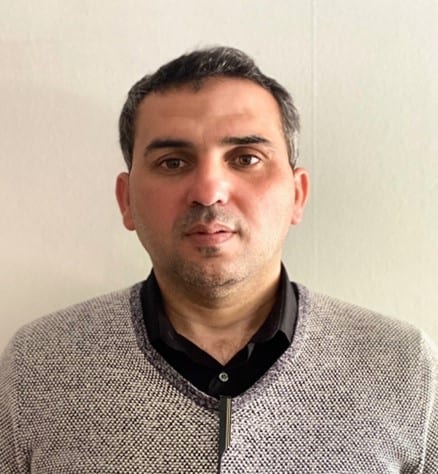The recent Israeli military operation on the Gaza Strip, the so-called Operation Guardian of the Walls, has created a new environment of destruction and family displacement. It has overloaded surviving families with devastating psychological, social and financial problems. The Gaza Strip has about two million inhabitants living in inhumane conditions – over 80 per cent of whom now rely on donor assistance. Gazans whose houses were destroyed are now seeking shelter as they wait for the aid needed to rebuild the strip.
The United Nations (UN) estimates that the recent Israeli bombardments have destroyed 260 buildings and damaged 53 schools, six hospitals and 11 other healthcare facilities, including Gaza’s only COVID-19 test centre. The Gaza Strip and the West Bank have already seen more than 330,000 COVID-19 cases, and according to Oxfam America’s estimates, more than 3,700 people have died due to the virus. Oxfam also estimates that 100,000 people have been displaced, as Country Director in the Occupied Palestinian Territory Shane Stevenson explained: “Every one of the 2.1 million people living in the Gaza Strip has been affected by Israel’s bombing that took 253 lives, destroyed or damaged 258 buildings containing nearly 1,042 homes and commercial offices, and devastated vital public services.”
Some 1,447 housing units were completely demolished and 13,000 more damaged in the Israeli shelling. The bombing also damaged media offices, according to Gaza’s Ministry of Government Information. More than 800,000 are without regular access to water due to the damage inflicted on Gaza’s desalination plants and water infrastructure.
Humanitarian Coordinator of the Occupied Palestinian Territory for the UN Office for the Coordination of Humanitarian Affairs (OCHA) Lynn Hastings said while visiting the Gaza Strip after the “ceasefire”: “The intensity of the strikes were without pause; too many homes lost and loved ones gone. Many people told me they feel helpless – and no longer have hope. Parents say they cannot reassure their children that this won’t happen again. How can they after so many wars?”
These effects and damages are similar to what the Israeli military operation left on the Gaza Strip during the summer of 2014, when thousands of Palestinians lost their homes and took shelter in UNRWA schools. The UNRWA issued an earlier emergency $38 million appeal to cover urgent humanitarian needs.
Read: Israel army chief calls for Gaza reconstruction funds to be given to PA
Emergency plan
These circumstances are putting pressure on the international community to launch an emergency plan to assist in a speedy recovery and sustain a long-term “ceasefire” while exploring “political solutions”. The Biden administration has announced a contribution of $150 million, a partial restoration of the annual funding to UNRWA, which was frozen by President Trump in 2018. Hastings, following OCHA’s launch of a different emergency plan to support Gaza’s relief, also stated: “This week, I will be releasing almost $US18 million from the OPT Humanitarian Fund and the Emergency Relief Coordinator in New York will release an additional $4 million to restore people’s access to basic services, such as healthcare and water.”
These emergency plans should be integrated into an effective and efficient international mechanism to replace the so-called Gaza Reconstruction Mechanism (GRM), which was established after the 2014 Gaza war to rebuild the damaged infrastructure, including houses. The GRM, however, increased the Gazans’ suffering, owing to Israel’s control over channelling materials and access to the strip. A new mechanism should replace the GRM to bring together various actors and stakeholders (such as the UN, the European Union (EU), the US, Egypt and Qatar), who can speed up Gaza’s recovery more efficiently, bypassing Israel’s policy of collective punishment for the Gaza Strip. A number of countries have been offering financial support for Gaza and for the institution of a new mechanism to replace the GRM, as both Egypt and Qatar have each pledged $500 million.
Civil society and human rights groups around the world, however, have been very strong voices in advocating for Palestinian rights. They have called for Israel to be held accountable after the 11-day war and the so-called Operation Guardian of the Walls, which left massive destruction, 1,900 injured, and 254 Palestinians in Gaza – including 66 children and 33 women – having lost their lives.
Gaza: residents continue clean up after Israeli military offensive
Global civil society’s support for Palestinian rights
These violations of international law and human rights by the Israeli occupation forces have put pressure on many countries; for example, the Ireland civil society groups influenced the government to take diplomatic actions against Israel. On 26 May, 2021, the Irish parliament, known in Ireland as Dáil, became the first EU country to declare de facto annexation of Palestinian land. The Foreign Minister Simon Coveney called the vote “a clear signal of the depth of feeling across Ireland.”
On 27 May, the Human Rights Council (HRC) passed a resolution to investigate war crimes after UN rights chief Michelle Bachelet said Israeli strikes and activities against Palestinian forces may have amounted to war crimes. No one can compare the Israeli and Palestinian factions in the Gaza Strip in terms of power. Israel is a superpower with nuclear weapons and a sophisticated and modern military arsenal, supported mainly by the US and other European countries, while the Palestinian faction owns very basic rockets that are homemade underground, incomparable to the Israeli forces’ resources.
The ceasefire is still highly fragile, as Israel and Hamas may not agree on many issues such as Jerusalem, the siege and the mechanism of channelling the Qatari grant to pay the salaries of employees hired by Hamas to run PA institutions in the Gaza Strip.
The views expressed in this article belong to the author and do not necessarily reflect the editorial policy of Middle East Monitor.

![A Palestinian child can be seen playing on her bicycle in her bedroom after an Israeli tank shell penetrates the walls in Gaza City in May 2021 [Mohammed Asad/Middle East Monitor]](https://i0.wp.com/www.middleeastmonitor.com/wp-content/uploads/2021/12/1-2-scaled.jpg?fit=920%2C613&ssl=1)







